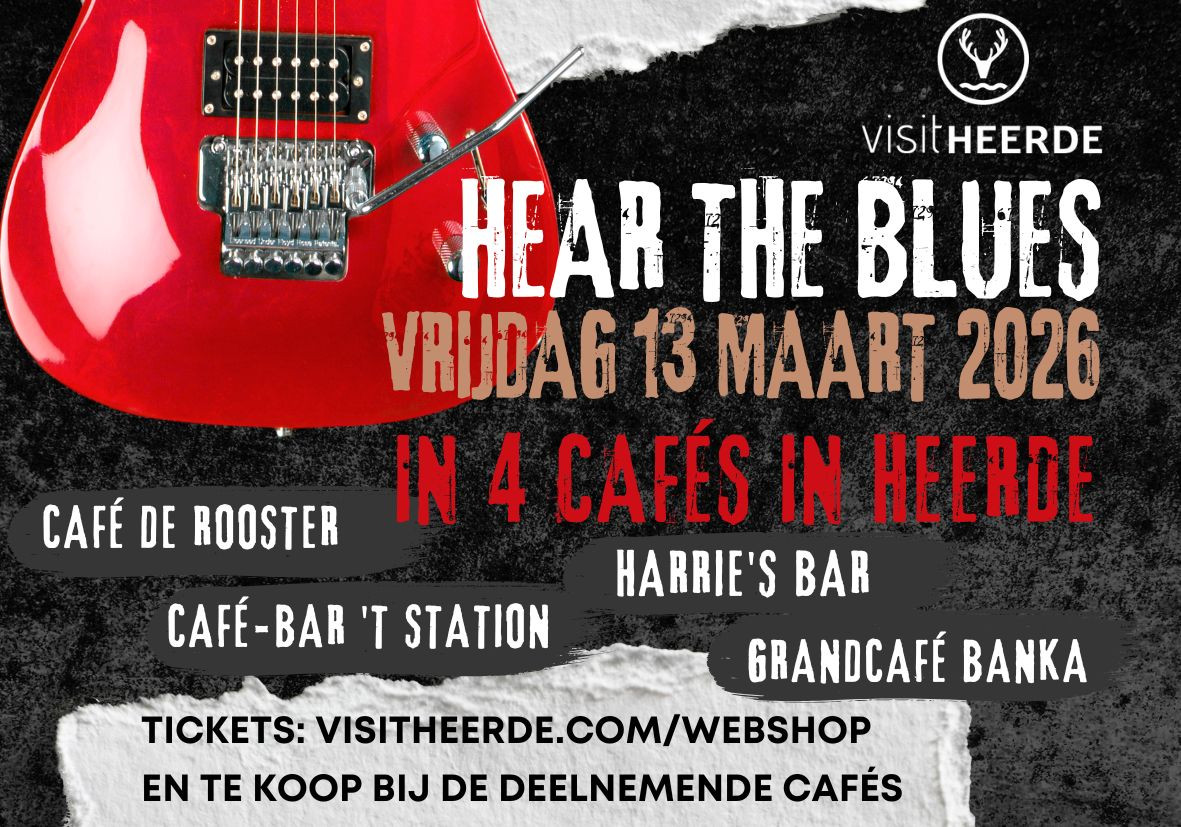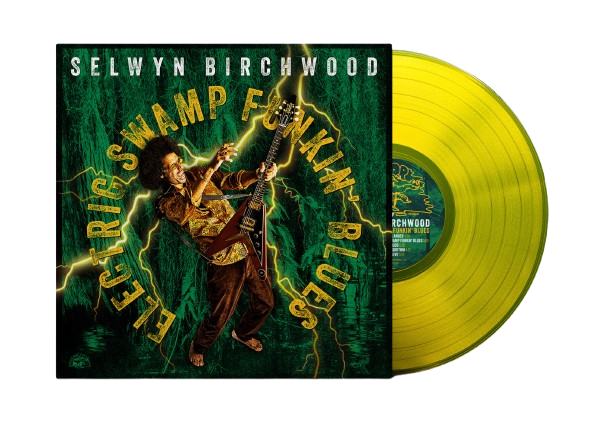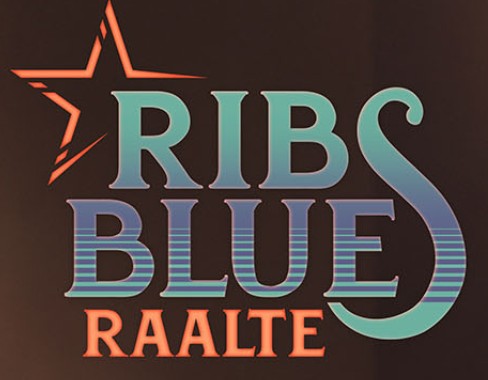 Afel Bocoum brengt album 'Lindé' op 4 september uit via World Circuit
Afel Bocoum brengt album 'Lindé' op 4 september uit via World Circuit
De gevierde Malinese songwriter en gitarist Afel Bocoum brengt op 4 september zijn nieuwe studioalbum 'Lindé' uit via World Circuit Records. De eerste single 'Avion' is nu te stre

amen. Genoemd naar de wilde uitgestrektheid bij Bocoums geboortestad Niafunké, is 'Lindé' een opmerkelijke mix van diepe traditie en gedurfde innovatie.
Het album werd opgenomen in de hoofdstad van Mali, Bamako, en hecht de eeuwenoude muziek van de Niger aan elkaar met stijlen uit de hele wereld.
Op het album treden een aantal eminente Malinese muzikanten aan, waaronder Madou Kouyaté, wijlen 'Hama' Sankaré en Madou Sidike Diabaté, samen met drums van onlangs overleden Afrobeat pionier Tony Allen, trombone door Vin Gordon (Bob Marley / Skatalites) en viool door Joan as Police Woman
Damon Albarn, die samen met World Circuit's Nick Gold als uitvoerend producent bij de opname betrokken was deelt zijn gedachten: “Afel’s voice is one of the treasures of Mali, and this record is a gift to us all.” Traditionele instrumenten zoals de ngoni, njurkele, kora en calabash vermengen zich met gitaren, percussie en call-and-response zang. Het resultaat is een zacht golvende stroom die uitgaat van een bron die diep in de historische en mystieke tradities van het geboorteland van Bocoum verborgen ligt en die onderweg verrijkt wordt door muzikale zijrivieren en kruisstromen. Het is muziek die eerder stroomt dan klotst, sierlijk, ongedwongen en minimaal van opzet.
'Lindé' is tevens een album met een boodschap - in een onzekere en turbulente wereld en een vaderland dat worstelt met jihad, armoede en stammenoorlog, dringt Afel aan op hoop, solidariteit en eenheid: "We have to meet each other, talk to each other, look each other in the eye and tell the truth,” Aldus Afel. “If we’re not united, I can see no solution. Our social security is music. That’s all we’ve got left. People love music, so we have to make use of that fact."
Voor meer informatie contact op met Gerard Esenkbrink van V2 Records.
Bio:
AFEL BOCOUM - Biography
By Andy Morgan.
—————————————————————————————------------
There are
times during the rainy season, which lasts from mid-June to mid-September, when
the small town of Niafunké in the Timbuktu region of northern Mali is almost
completely surrounded by water. Thunderstorms flood the pastures that border
the town on three sides, creating marshes full of birds and aquatic life. And
on the fourth side, the great Niger River flows sedately past, just under
half-way along its 4,100-kilometre-long journey from the Fouta Djalon mountains
of Guinea to the Niger Delta and the Atlantic Ocean beyond.
The entire region, known as
the ‘Niger bend’ because of the immense loop that the river traces up into the
southern fringes of the Sahara, lies on the cusp between the vast empty desert
to the north, and the lush savannah bushlands to the south. The interactions
and tensions - climactic, cultural, political, economic - between these two areas
have bequeathed a rich and complex history, and, as a consequence, an abundant
diversity of music and culture. Afel Bocoum is a child of that liminal land and
an inheritor of its multi-cultural riches, of the deep bond that binds north to
south, despite the successive conflicts that have sought to divide them. He’s
also a child of the great river.
“Where I come from, the river is everything,” he says. “I always say
that water has its own music. You have to see how it undulates and, when
there’s wind, how it beats against the shore, back and forth.” Listen to the
music of Afel Bocoum and its aquatic properties soon become apparent.
Traditional instruments like the ngoni, the njurkele
(two-stringed lute), the kora and calabash (percussion gourd)
blend with guitars, percussion and call-and-response vocals to create a gently
undulating flow that emanates from a source hidden deep in the historical and mystical
traditions of Bocoum’s native land, enriched along its way by tributaries and
cross-currents, ever sure of its purpose and direction. It’s music that rolls
rather than rocks, graceful, unforced and minimal by design.
His new album Lindé, named after the wild expanse near Niafunké
where Afel and his childhood friends played and hunted animals, delivers this flow,
not only with grace and depth, but also daring. Afel Bocoum is among a
dwindling number of African musicians belonging to that breakthrough generation
who cross-pollinated their own traditional music with the sounds that arrived from
Europe, the Americas, the Middle East and Asian subcontinent in the mid-20th
century. Lindé’s coherence - balancing deep tradition with audacious
innovation – is remarkable, stitching together interventions as diverse as the
drums of Afrobeat pioneer Tony Allen, the trombone of Vin Gordon (Bob Marley /
Skatellites), and the violin of Joan As Police Woman, with the age-old music of
the Niger bend, and making all those joins disappear. Although rooted in northern
Mali’s ‘Desert Blues’, it brings in many regional styles from across Mali –
such as the Manding kora and Wassoulou kamelngoni – a celebration of the
country’s diversity and its once famed sense of unity and tolerance.
What’s surprising is that
music with such a buoyant rippling lilt to it is often bearer of such a grave,
even tragic tidings. “Mali is on the ropes,” Afel explains in his song notes,
“the country is unrecognisable.” Ever since the civil war of 2012, when
Touareg-led separatists in the north launched a rebellion against the central
government, jihad, poverty and tribal war have brought it to its knees. Old
spats about land use and grazing rights have turned violent. Symbiotic tribal
relationships that have underpinned society for centuries have been torn to
pieces. Angry jobless youth have been seduced by the call to jihad and the
promise of money and paradise. The end of tourism has shipwrecked the local
economy.
But this gloom is mitigated
by defiant expressions of hope and solidarity found throughout the album: ‘Lord,
we’re grateful to you,’ Afel sings in ‘Jaman Bisa’. ‘Because
today we’ve found peace again.’ In ‘Sambu Kamba’, he holds out his
hand to the rebels and jihadists, urging them to negotiate. ‘If you’re hiding down holes, my brothers /
Come out so that we can talk.’ Afel’s
love for his country is fervent, and constant.
‘Avion’, the ‘pirogue that flies’, is playful
and optimistic, with its praise of the aeroplane, and its praise for white
people, who, ‘despite all the negatives we can imagine about them, have blessed
us with this wonderful creature. We’re grateful to them.’ The song really does
‘take off’, soaring skywards on beat that’s close to Congolese soukous, with
the guitars of Mamadou Kelly, Oumar Konaté and Lamine Soumano, providing sweet
and melodic propulsion. ‘Bombolo Liilo’ dances along bushland tracks to
an up-tempo reggae beat, opening with a sweep of Vin Gordon’s horns worthy of an
old skool Skatellites 7inch, and with muted guitar from Garba Touré (Songhoy
Blues), kamale ngoni from Harouna Samaké and kora from Madou Sidiki Diabaté
(brother of the legendary Toumani). ‘Djougal’ honours the man who
organised the farmers of Niafunké into a cooperative, opening with a ponderous
boom from the n’goni ba or ‘great lute’, courtesy of Yaya Dramé, with a
loping curving beat that echoes the takamba (one of the most popular
dance beats to this day among the ancient Songhoy people), and then breaking
into a lively shuffle, with the calabash of the late great ‘Hama’ Alpha Ousmane
Sankaré, blending seamlessly with the inimitable snare and kick action of Tony
Allen.
Music hasn’t been an easy dream to follow for Afel. It isn’t considered
an honourable occupation in Mali, and so most aspiring musicians have to face
stiff parental opposition. In Afel Bocoum’s case, this parental disapproval was
all the more perplexing, given that his father, Abakina Ousmane Bocoum, aka
‘Kodda’, was one of the most famous njarka players of the twentieth century.
Afel barely knew his father. He was away most of the time, playing ceremonies,
living another life. He remembers looking at Kodda’s njarka hanging from the
rafters of their small home. “My mother told me that he was scared for me to
play it,” he says. “He didn’t want me to carry on the tradition. He said that
he’d been hexed by people who do bad things to make sure you don’t
develop or move forward in life. It’s just jealousy.”
But Afel wasn’t deterred – music was all around him, in the holey, or spirit dances, of Songhoy, in
the plaintive melodies of Fulani flute, in the gumbé drum sessions with their wild moonlit dancing, in the words
of the storytellers and in the hymns of the local Protestant Mission. Music was
more than mere entertainment, far more; it taught people about life and the
right way to live it. It guaranteed social cohesion and the strength of the
collective conscience, especially in a society that was still largely
illiterate and devoid of modern media. “There was no radio at the time, no TV, nothing.
It was incredible,” Afel remembers. “When you saw someone with a guitar, you
followed him everywhere.”
Little wonder that Niafunké’s greatest son, the singer and guitarist Ali
Farka Touré, exerted such a powerful hold on the young Afel Bocoum. When he
first met him in the late 1960s, Afel was barely a teenager and Ali was already
famous. Local people spoke in awed tones of how Ali had been given the gift of
music by the djinn (spirit)
Tiowmidine as he sat under a tjayki
tree, just outside Niafunké. “Whenever he came back [to Niafunké], you could
see him, but you couldn’t approach him,” explains Afel. “He had charisma, and
we were just children. You had to have a reason to sit down with him.”
The young Afel hung out with Ali as much as he could, and eventually
became a regular member of Asco, the name Ali had given his backing
band. Afel toured with Ali and Asco throughout the 1980s and 1990s, and also
appeared on Ali’s studio album ‘The Source’, in between his day jobs as a
government agent specialising in tropical agriculture (a job which took him all
over Mali) and a cultural animateur
for the Ministry of Youth, organising concerts, competitions and street parties.
The idea of releasing his own music arose from a gentle curiosity rather
than any self-serving ambition or desire to upstage his mentor. “Everybody
seemed to be releasing albums all around me, so it was like, ‘why not?’” he
says. Ali Farka Touré promised to talk to Nick Gold, artistic director of World
Circuit. Alkibar (meaning “The Messengers”) the resulting
1999 debut album, established
Afel Bocoum as an international star in his own right. Thanks to the album’s
success, Afel was invited to work with Damon Albarn and Toumani Diabaté on the
2002 album Mali Music. He went on to become
a regular contributor to Africa Express, and to collaborate with Bela Fleck,
Habib Koité, Tartit Ensemble, Oliver Mutukudzi, and many more. “You have to
collaborate, otherwise you’ll get nowhere in today’s world,” Afel says. “All
those collaborations were positive.” Those connections have held strong, with
Damon Albarn and Nick Gold now acting as executive producers on Lindé.
Back in January 2020, the third edition of Festival Alkibar, an annual
showcase of local music, dance and theatre founded by Afel Bocoum, album
producer Paul Chandler and Afel’s young disciples loosely known as ‘Alkibar Jr’,
took place in Niafunké without a hitch. Local people attended in large numbers,
glad of the opportunity to
listen, dance and talk in an atmosphere of tolerance and mutual respect.
The event demonstrated what this profoundly multi-cultural society is capable
of when left in peace.
Ultimately, it’s not the style but the content that matters. Afel knows
that. In the old days, before European-style education was introduced by the
colonial powers, children learned everything they needed to know about life
from their extended families, their villages, their communities, through
theatre, stories, rituals, but most importantly music. In this way, they were
taught the most fundamental lesson of all, which is how to live together and be
considerate towards your fellow human being.
“We have to meet each other,
talk to each other, look each other in the eye and tell the truth,” Afel says. “If
we’re not united, I can see no solution. Our social security is music. That’s
all we’ve got left. People love music, so we have to make use of that fact.”







Geen opmerkingen:
Een reactie posten